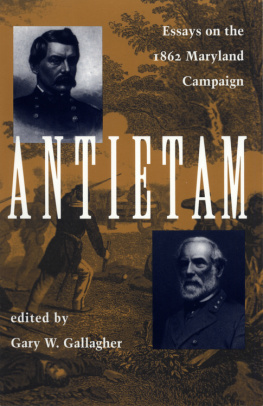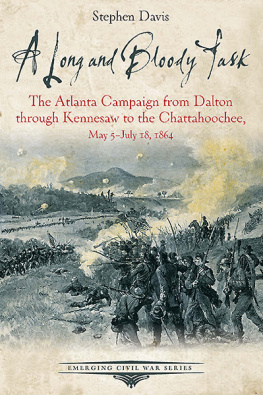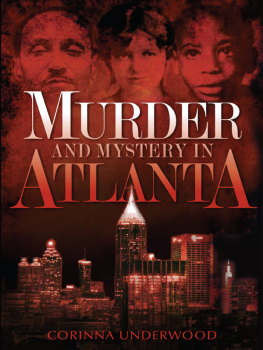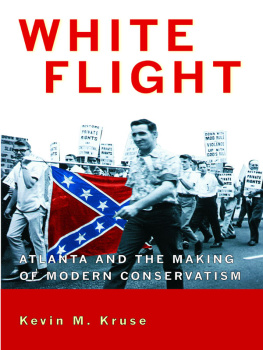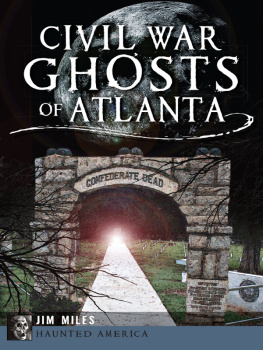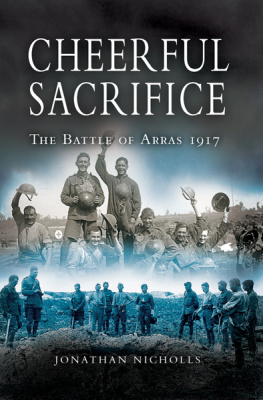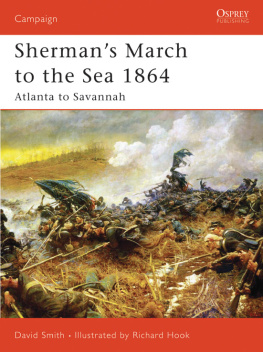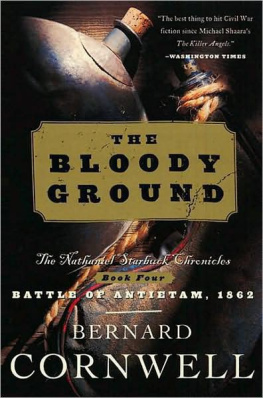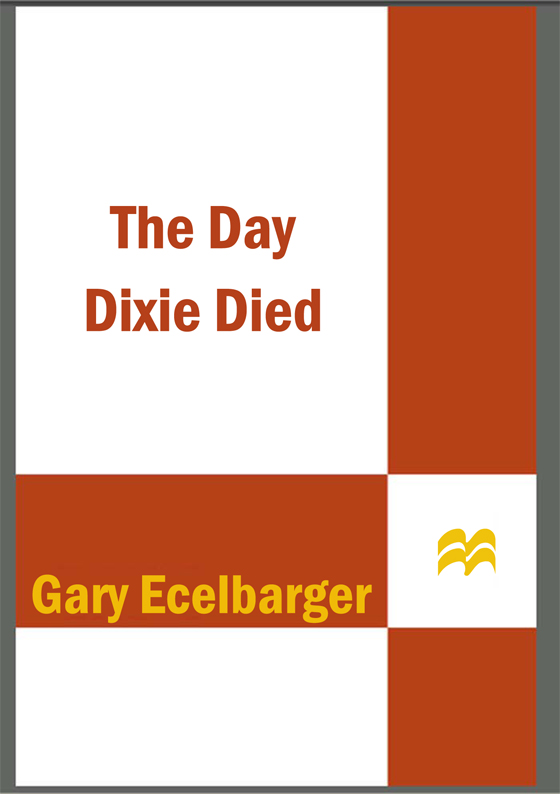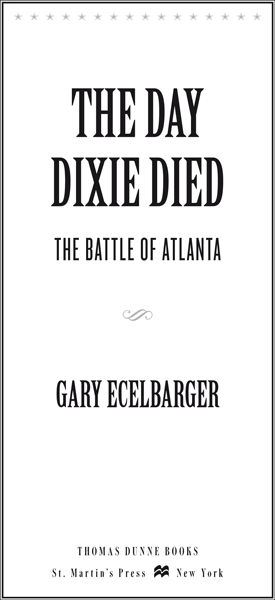
To
Craig, Kurt, Jon, and Karla
from
your brother
CONTENTS
LIST OF MAPS
LIST OF ILLUSTRATIONS
ACKNOWLEDGMENTS
This work is the product of several years of research and could not have been achieved without the assistance of those at the local, state, and national historical depositories and without the aid of historians and biographers whose interests dovetailed with mine. Their numbers run into the scores; for example, each historical society and archive listed in the bibliography employed as many as five who directly assisted me. They proved as knowledgeable as they were dedicated, and I found them indispensable to producing this book. The same holds for the authors of all the books cited. Their works held pearls necessary to tell my story, many of which I would never have found on my own. Collectively, I salute them and thank them for their time and effort spent on me.
Specifically, I wish to highlight a few talented people who made this work possible. No book about a Civil War battle or campaign can convey the authors interpretation without a decent set of troop-movement maps to guide the reader through the authors narrative. George Skoch is the cartographer of this book and his outstanding maps are the first ones ever published to interpret the Battle of Atlanta in more than one or two phases. His maps capture the battle in stages ranging from thirty to ninety minutes and it was a genuine thrill to see each of them for the first time. I thank Mr. Skoch for his talent, his patience, and his professionalism.
Dr. Stewart Bennett of Blue Mountain College proved indispensable to this work. His Ph.D. thesis interpreted the Battle of Atlanta, and he generously provided primary source material that filled in the gaps of my own research. More than that, Stewart became a favorite sounding board to field my questions and assess my interpretations while sharing his own take on the battle in whole and in parts. His knowledge, generosity, and warm friendship will never be forgotten. I also thank historian Steven E. Woodworthnot only for his expertise on the Army of the Tennessee, but also for connecting me with Dr. Bennett.
Keith Bohannan is a valuable Civil War historian and the expert of all things Georgia. I thank him for all the times he directed me to source material I had not previously considered and for sending me some archival gems from his own research. I also thank historian Scott Patchan for sharing his expertise on the Civil War in 1864 and for his skills in research and battlefield interpretation. All of my trips to Atlanta have been with Scott as well as other research trips to several other states where we collected source material specific to the battle and campaign for Atlanta. Nearly twenty years of friendship with Scott have proven invaluable to my understanding of this pivotal period of Americas past. Rod Gainer, another historian and yearslong friend, critiqued some of my manuscript chapters for which I am grateful.
I thank Ed Knappman (New England Publishing Associates) for representing this work and finding it a great home. I am also grateful for those who produced this book at Thomas Dunne Books, particularly Rob Kirkpatrick for acquiring the project and overseeing its publication, Bob Berkel for line editing the manuscript, and to Margaret Smith for guiding it through all the necessary steps to produce the final product.
I close with acknowledging my wife, Carolyn, for her numerous sacrifices made to afford me the countless hours necessary to research and write this history. Her selflessness in this regard is but one reason why she always has and always will own my appreciation, my respect, and my love.
AUTHORS NOTE
Most historians and Civil War buffs concur that the war was won for the Union and lost for the Confederacy in the West. The meaning here generally refers to a military theater bordered by the Appalachians in the east and the Mississippi River in the west. In the spring and summer of 1864 the theater boundary expanded southeastward as the opposing armies that had spent the two previous years battling in Kentucky, Mississippi, and Tennessee waged war within 250 miles of the beaches lining the Atlantic coast. This book isolates one battle of the summer of 1864 that had a greater impact on that outcome than previously recognized.
The fact that two Western armies fought in the East symbolizes the difficulties a historian must overcome to present this history as clearly as possible. Understanding the Battle of Atlanta presents challenges to even the most voracious readers of military history. The aggravating similarity in the names of the opposing armiesthe Army of Tennessee versus the Army of the Tennesseeis guaranteed to confuse readers and sometimes even writers. Add to this the facts that there are several brigade and division commanders surnamed Smith, that opposing forces clashed against each other from opposite directions in consecutive days, and that aside from Sherman, Hood, and perhaps Cleburne most of the personalities involved in the battle are unknown to those with a general interest in the Civil War as well as to those well versed in Eastern campaign battles. There are hundreds of Civil War aficionados who can rattle off the names of Sickles, Hancock, Ewell, and Longstreet as the surnames of corps commanders at Gettysburg, but will be reduced to scratching their heads when asked to name just one corps commander active in the Atlanta campaign, let alone any of the six Union and Confederate corps commanders at the Battle of Atlanta. Nor would it be surprising to see the Eastern theater buffs respond with a vacuous stare when asked to name the general in charge of the victorious army at the close of the Battle of Atlanta.
Aside from the lack of recognition of the participants opposing each other at Atlanta on July 22, 1864, challenges to interpretation exist that are not unique to this battle or theater for that matter. Oftentimes Confederate brigades, divisions, and corps are identified by a proper name taken from an earlier war commander no longer in charge of the unit. For example, Cheathams Division (note the capitalization of the unit) fought in the Battle of Atlanta commanded by Brigadier General George E. Maney. Major General Benjamin Franklin Cheathamfor whom the division was namedfought in the battle as a corps commander, not in charge of the corps for which his old division served, but, instead, at the helm of Hoods Corps that had a vacancy when its namesake commander, General John Bell Hood, ascended to command the entire Army of Tennessee in this battle. One can imagine the tedium and confusion reading the following phrases that would pepper the battle narrative, General Cheatham, in charge of Hoods Corps, and Cheathams Division, under General Maney. Furthermore, referring to these two specific commands by their capitalized names renders ambiguous the phrase Cheathams command or even Hoods men. Other named units, such as Granburys Brigade and Hindmans Division, fought in the Battle of Atlanta without their namesake commanders; Generals Granbury and Hindman were nursing wounds that kept them from this battle. To constantly refer to these commands by their absent commanders will guarantee confusion for both writer and reader.
This book was written with the deliberate attempt to avoid the aforementioned pitfalls in comprehension. To prevent confusion between the nearly identical names of the opposing armies, the Confederate Army of Tennessee is more frequently called Hoods army while the Union Army of the Tennessee retains its name throughout the narrative to distinguish it from the other two Union armies surrounding Atlanta. Additionally, all of the Union corpsand only the Union corpsare identified by a Roman numeral (e.g., XV Corps). All Union and Confederate regiments are designated by their number and state (e.g., 5th Arkansas, 11th Iowa); whenever the terms Artillery, Cavalry, or Infantry do not immediately follow the numeric and state designations, it can be assumed that the unit referred to is infantry.


